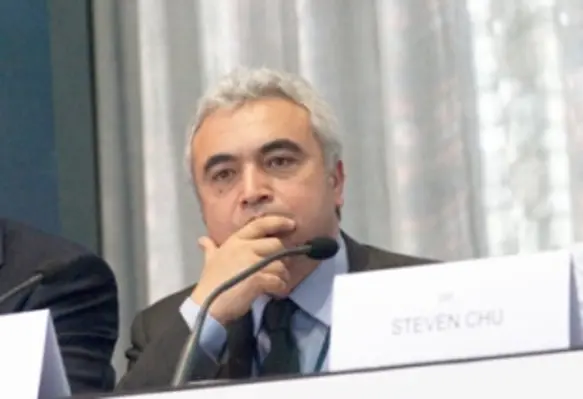The Middle East accounted for 35 per cent of global oil production in October, its highest level in over 40 years, said Dr Fatih Birol, executive director of the IEA at a press conference marking the launch of its World Energy Outlook 2016
Despite the shift towards lower-carbon sources of energy and the rise of renewables, which are set to account for 60 per cent of all new power generation capacity to 2040 and are described as the ‘growth story’ of the 2016 issue, oil remains key to energy security, Birol commented.
Energy security is likely to be a major issue in the coming years, as energy and geopolitics become increasingly interwoven, although a range of tools is now available to address this, such as new technology, electric cars, natural gas and greater energy efficiency.
Global oil demand will continue to grow until 2040, mostly because of the lack of easy alternatives to oil in road freight, aviation and petrochemicals, according to the report. Demand from passenger cars is set to decline, mainly thanks to improvements in efficiency, but also as a result of the growth of biofuels and rising ownership of electric cars.
Without a pick-up in investment or a slow-down in demand, the stage is set for a new boom and bust cycle for oil, comments the IEA, noting that approvals of new conventional crude projects for 2015-2016 were at their lowest level since the 1950s. If approvals continue to be suppressed in 2017, this could result in significant risk of a shortfall in new conventional supply within a few years, and a sustained effort will be needed to address the supply-demand gap. While US tight oil offers a potential lifeline, it cannot be relied upon to cover a major shortfall in baseload oil supply.
“We are entering a period of greater oil price volatility,” said Dr Birol. “If oil prices rise in the short term, then shale producers can react quite quickly to put more oil on the market, producing a see-saw movement. And if we continue to see subdued investments in new conventional oil projects, this could have profound consequences in the longer term.”
Over the longer term supply will increasingly concentrate in the Middle East, the report forecasts. The IEA sees OPEC’s share of global production rising towards 50 per cent by 2040, with the world becoming increasingly reliant on Iran and Iraq to balance the market.







